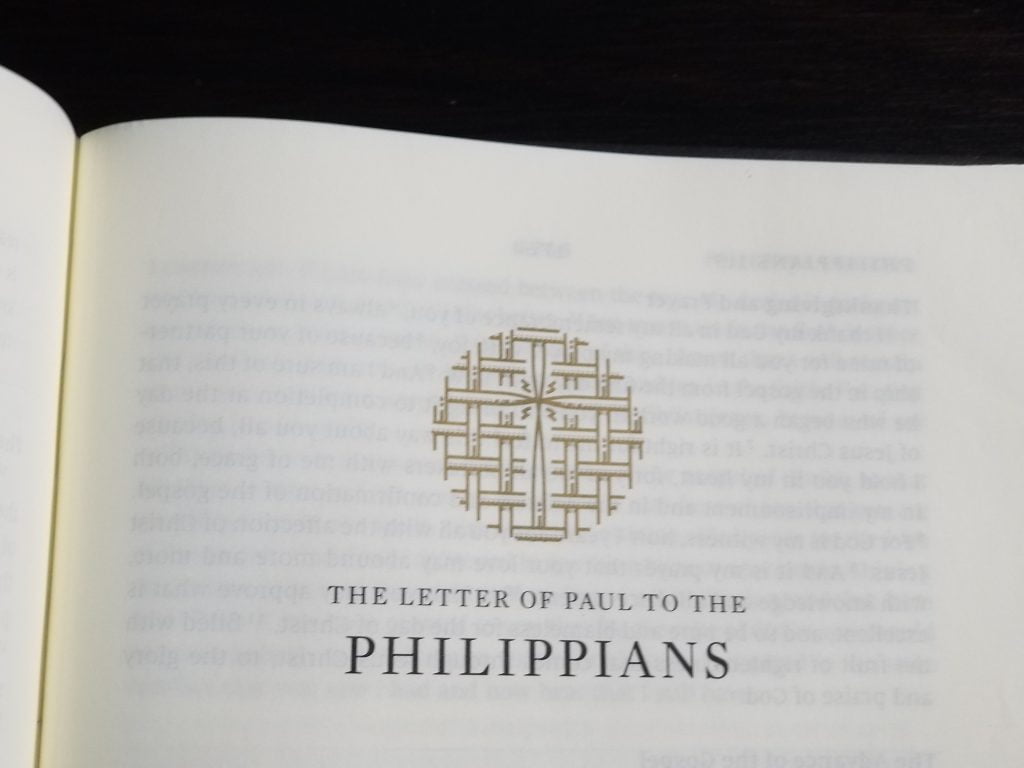⏱️ Estimated Reading Time: 6 min read
Philippians 1:9-11, “9 And it is my prayer that your love may abound more and more, with knowledge and all discernment, 10 so that you may approve what is excellent, and so be pure and blameless for the day of Christ, 11 filled with the fruit of righteousness that comes through Jesus Christ, to the glory and praise of God.”
“Love” is an overused word. I feel sorry for it; it has to be experiencing at least some level of burnout. Regrettably, we don’t have other words to come in as a reliever for love. Since we don’t, love presses on. It wipes the sweat off its brow and lets us know it’s ready to go in whenever we need it. It sounds admirable, but as a result of our excessive use, love enters the game during times when it should be on the sideline. Yes, we absolutely love our family, but do we really “love” our new iPhone case?
Regardless of love’s multiple, and sometimes misplaced, uses, it always tends to be tied to emotion. Love, our culture tells us, is a feeling that fluttery awakening in a young man’s heart when he sees a pretty girl or the fresh excitement in meeting with an old friend.
God’s View of Love and Our View of Love
God’s view of love differs from pure emotion, and his method of increasing our capacity to love is even more countercultural. In chapter one, verses nine through eleven of the letter to the Philippians, the apostle Paul approaches love from a Holy Spirit-inspired angle. He begins with a petition to God for the Philippian believers that makes his longing clear: “And it is my prayer that your love may abound more and more” (Philippians 1:9a).
Paul’s desire is simple: he wants the Philippians to grow, or to abound, in love. Thankfully, he doesn’t stop there. We are given an insight into how they should go about their abounding. The second half of verse nine reads, “with knowledge and all discernment.”
Knowledge and discernment are the two least emotional words I can think of, yet this is Paul’s strategy for abounding in our capacity to love God and others. If we want to be more like Jesus and love more closely to how he loves, we would do well to seek how we can grow our knowledge and discernment. The following are three practical ways that we can grow in these two crucial traits.
Three Practical Ways to Grow in Knowledge and Discernment
- Ask God
This one almost sounds like a cop-out, yet it is one of the most powerful ways we can grow in knowledge and discernment, which in turn grows our love for God. The book of James tells us plainly, “If any of you lacks wisdom, let him ask God, who gives generously to all without reproach, and it will be given him. But let him ask in faith, with no doubting, for the one who doubts is like a wave of the sea that is driven and tossed by the wind” (James 1:5-6). If you’d like to grow in wisdom or knowledge or discernment, get on your knees and ask God with a believing and humbly expectant heart.
- Find What Makes God Tick
Like most things in life, growing in knowledge about something requires some work on our end. No one stumbles into fixing the slice on their golf swing; it requires a knowledge studying what the experts say and then putting it into practice. In the same way, growing in knowledge and discernment requires the searching of God’s Word to find out who he is. The most helpful and efficient way to increase our understanding of God is to look at Jesus, who is the “image of the invisible God” (Colossians 1:15). Jesus is fully God in human form, so if you’d like to know how God feels about something, read about Jesus’ approach to it. Does God care about the poor? Is status something that matters to God? Does God want us to worry? What makes him happy? What does God want our ambitions to be centered on? Questions like these all find resolution in the person of Jesus Christ, and thankfully, God has given us four eyewitness accounts of Christ to explore in the opening of the New Testament.
- Be Among the Wise
Another surefire strategy for growing in knowledge and discernment is surrounding ourselves with knowledgeable and discerning people. Proverbs reminds us that “Whoever walks with the wise becomes wise, but the companion of fools will suffer harm” (Proverbs 13:20). Thankfully, these folks are not hard to spot. Who in your life exhibits a strong love for Jesus? Who keeps their hope anchored in Christ, and lets righteousness direct their moral compass? Who shows sincere humility and service to others? In many ways, we are who we’re around. If our circle consists of those who clothe themselves with knowledge and discernment, chances are it won’t be long until we are wearing the same thing.
Conclusion
As the Philippians grow in knowledge and wisdom, and as that growth turns into an abundance of love, Paul lets them know the beautiful results in verses ten and eleven of chapter one, “so that you may approve what is excellent, and so be pure and blameless for the day of Christ, filled with the fruit of righteousness that comes through Jesus Christ, to the glory and praise of God” (Philippians 1:10-11). Believers who grow in love with wisdom and discernment will be able to carry out lives pleasing to God. As they grow in holiness, the knowledge of Christ’s saving work done for them on the cross will be even more apparent, giving them full confidence that they will stand blameless before God at the time of their death. And not only this, but the fruit of their lives will be that of righteousness and good works. Paul wraps all these results of abounding love up with a big bow by reminding us that it all is for the glory of our great King (Philippians 1:11b).
Love is an overused word, but God’s love is an underused action. Just as Paul prayed for the Philippians, so too do I pray that our gracious God would increase your love with every bit of knowledge and discernment.




